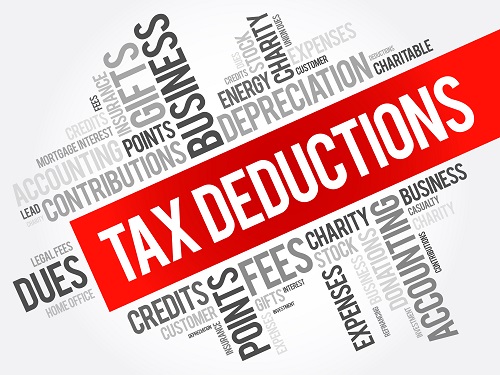We all try to save tax by using income tax deductions to reduce taxable income. Unfortunately, many times, due to a lack of proper understanding of the available income tax standard deductions, we end up paying more tax than we are supposed to. need to run around a chartered accountant to file returns and get back tax refunds.
You might have come across terms like Section 80C, and Section 80CCC while buying life insurance plans that could be used as deductions to reduce taxable income. But what many people don't know is that along with these sections, a few more sections could help reduce taxable income.
Let us know these sections in detail.
What Comes under Income tax Section 80C?
Under Section 80C of the Income Tax of India, an Individual or Hindu undivided family (HUF) can claim tax deductions on the taxable income up to a limit of Rs 1,50,000. This taxable income deduction could be availed by investing in tax-saving instruments and tax-saving investments like the following.
Employee Provident Fund (EPF): As per statutory compliance, the employer and employee contribute about 12% of the basic salary disbursed to the employee to EPF fund for the purpose of retirement benefits. Therefore, all Employees contributions are eligible for tax deductions.
ELSS Funds (Equity-Linked Savings Schemes): These are mutual fund schemes that invest majorly into equities. Investments in these funds can be claimed as deductions under section 80C (subject to fulfillment of conditions).
Infrastructure Bonds: These pertain to government-approved infrastructure bonds issued by special financial vehicles set up for infrastructure development in the country.
Life Insurance Premiums: All the premiums that are paid for availing of life insurance policies are also eligible as deductions under this section.
NSC – National Savings Certificate: This scheme is offered by the postal department of India. An investment made under this scheme is eligible for taxable income deduction.
Tuition Fees of Children: Even tuition fees that are paid for any college or university in India are eligible for deduction under Section 80C. One can avail of this deduction only for two children.
Home Loan: Individuals who have a home loan can avail of benefits of home loan repayment as principal repayment of home loan is eligible as deductions under this section.
Post Office Fixed Deposits: These are 5-year deposits offered by the post office, investment in which are eligible as a deduction under Section 80C.
What comes under Income Tax Section 80CCC?
Section 80CCC of the Income Tax Act allows for income tax deductions that taxpayers can claim for purchasing certain annuity plans or pension funds offered by public insurance companies. It is necessary that such funds need to be eligible under reference to Section 10(23AAB).
There are no exemptions under these types of policies where payment proceeds like a bonus and accrued interest are always taxable. These deductions can be claimed by both resident and non-resident Indians, whereas an undivided Hindu family cannot claim a deduction under this Section.
Certain pointers while availing benefits under this section:
The maximum deduction that can be claimed is Rs 1,50,000.
You cannot claim deductions for the bonuses or interest accrued under annuity pension plans.
All the proceeds from the annuity plans, and pension plans are taxable.
The pension from the policy needs to be paid per conditions laid in Section 10(23AAB).
Even if you surrender the plans for any reason, the surrender value that is paid back will be taxable.
What comes under Income Tax Section 80CCD?
Section 80CCD specifically pertains to contributions made for two of the government pension schemes that are very popular amongst the public. They are the National Pension Scheme (NPS) and the Atal Pension Yojana (APY). Section 80CCD has three different sections, namely the following.
Section 80CCD (1): Tax deductions are applicable under this section for any self-employed individual, government or private sector employee, all the citizens of India and even NRIs. Every salaried employee could avail of a deduction of up to 10 % of their salary. In the case of a self-employed individual, this could be ascertained as 10% of the individual's gross income subject to a maximum of Rs. 1 Lakh.
Section 80CCD (2): This section pertains to contributions towards NPS. An employee could claim a deduction under this section if his or her employer does make a payment to the employee's NPS account. Even in this section, the limit is set at 10% of the employee's salary subject to a maximum limit of Rs. 1 Lakh.
Section 80CCD(1B): This Section was introduced by amendments during the Union Budget 2015. It offers an additional deduction of Rs 50,000. This deduction was made available only for individuals who contributed to NPS, be it salaried or self-employed individuals. Including the other two sections, the maximum deduction that can be availed is Rs 2 Lakh.
Can I claim both 80C and 80CCD?
Both 80C and 80CCD come under the deductions available under Section 80 of the Income Tax Act, 1961. In contrast, deductions that are available under 80CCD cannot be availed under 80C. The combined deductions that are allowed are up to Rs 1,50,000 only. At the same time, one can claim an additional deduction of Rs 50,000 under Section 80CCD(1B). Thus, making the total deduction that could be availed to Rs 2 Lakh.
What is the difference between 80CCC and Section 80CCD?
Section 80CCC deals with deductions that can be availed for contributions made towards annuity plans, pension plans eligible under Section 10(23AAB). Section 80CCD only pertains to deductions for the two plans offered by the Government of India, namely the National Pension Scheme (NPS) and Atal Pension Yojana (APY).
Summing Up
Knowing the Sections would help you plan your tax savings more strategically, aiding your savings for future financial needs. You should always choose investment plans or schemes, keeping your short-term and long-term financial goals in mind.
If you are looking to save tax* and generate returns for your retirement, you can opt for Tata AIA Savings Insurance plans as the premium paid for the Tata AIA policy would be eligible for tax deductions*. These savings plans help secure your family’s financial future by building wealth and generating guaranteed returns.
L&C/Advt/2021/Jul/1114









 FOR EXISTING POLICY
FOR EXISTING POLICY 
 FOR NEW POLICY
FOR NEW POLICY 






